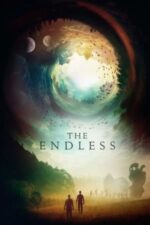The Long Shadow: Exploring Childhood Trauma in Cinema
Isn't it fascinating how often we see echoes of our past reflected on screen? Not just happy memories – but those tougher ones too. I’ve been thinking a lot lately about childhood trauma and its representation in film, and how powerfully cinema can illuminate the lasting impact these experiences have on us. It’s not always easy to watch, obviously, but it's often profoundly moving and insightful.
What is childhood trauma, really? Beyond the obvious – abuse or neglect – it encompasses any experience that overwhelms a child’s ability to cope. It can be witnessing violence, experiencing loss, or even growing up in an environment of constant anxiety. The key is that the child doesn't have the emotional tools to process what they're going through, and those unprocessed feelings often linger, shaping their adult lives in subtle (and sometimes not-so-subtle) ways.
You see this explored so beautifully – and with such different approaches – across a range of films. "Rainbow’s Tale," for example, doesn't shy away from the brutal realities faced by children caught in cycles of violence. It’s a sobering reminder that trauma isn’t some abstract concept; it’s lived experience, impacting lives across generations. It really hit me watching it – I remember reading about similar situations growing up and feeling so helpless.
Then there's "Nightmares," which takes a more psychological route. Cathy/Helen’s repressed memories manifest as terrifying hallucinations, blurring the lines between reality and delusion. It’s a classic example of how trauma can warp our perception and create a constant state of anxiety. The way they visually represent her fractured mental state is just stunning – it's unsettling without being exploitative.
Even films that don't explicitly deal with childhood trauma can reveal its influence. "Fantastic Family," Nicoline Skotte’s documentary, shows how unresolved family conflicts and skewed memories can ripple through generations, impacting adult relationships long after the initial events occurred. It’s a reminder that even seemingly “ordinary” families carry their own hidden burdens.
And it's not just about darkness. Sometimes, trauma manifests in unexpected ways – fear disguised as bravery, or vulnerability masked by aggression. "It Feeds" cleverly uses supernatural horror to explore themes of parental love and the lengths we’ll go to protect those we care for, hinting at a deeper, personal trauma within Greene’s character.
Ultimately, these films aren't just about depicting pain; they’re about exploring resilience, understanding, and the possibility of healing. They invite us to consider not only the impact of trauma but also the strength it takes to confront it – both on screen and in our own lives. What resonates with you most when watching a film like this? I'd love to hear your thoughts!







































